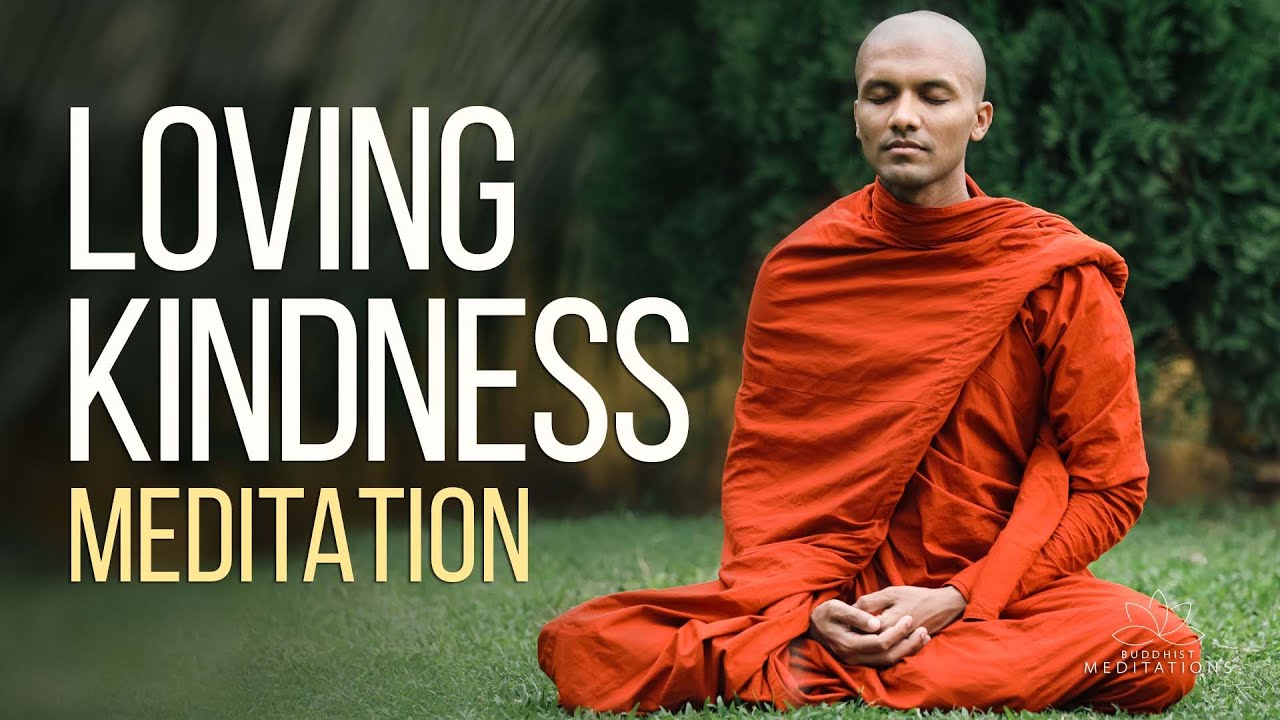HOW TO DO KARUNA MEDITATION | Buddhism In English
Summary
TLDRIn this video on Karuna meditation, the focus is on cultivating compassion towards oneself and others. The meditation is part of the four Brahma Vihara practices, which include loving-kindness, appreciative joy, and equanimity. The speaker emphasizes the importance of self-compassion as the foundation for extending empathy to others. Through specific phrases like 'May I be free from physical suffering,' practitioners are guided to foster a compassionate mindset that transforms their thoughts, words, and actions. Mastering Karuna meditation can lead to a more peaceful and compassionate life, positively influencing how individuals relate to themselves and those around them.
Takeaways
- 😀 Karuna meditation focuses on cultivating compassion towards oneself and others.
- 💡 Compassion, or karuna, is the ability to empathize with the suffering of others.
- 🧘♂️ The practice of Brahma Vihara meditations includes meta, karuna, mudita, and upekkha.
- 🤝 Starting with self-compassion is essential before extending compassion to others.
- 💭 Practitioners should use specific phrases during meditation to express compassion, such as 'May I be free from physical suffering.'
- 💖 It's important to genuinely feel and mean the compassionate thoughts while meditating.
- 🌟 After self-compassion, the practice should radiate compassion towards beings around you.
- 🌈 The meditation can be practiced in different ways, allowing for flexibility in approach.
- 🌱 Regular practice of karuna meditation leads to more compassionate actions and words in daily life.
- ✨ Mastery of compassion meditation can lead to a more peaceful and fulfilling life.
Q & A
What is Karuna meditation?
-Karuna meditation, or the meditation on compassion, focuses on cultivating empathy and compassion for oneself and others. It is one of the four Brahma Vihara meditations.
What are the four types of Brahma Vihara meditations?
-The four types of Brahma Vihara meditations are Metta (loving-kindness), Karuna (compassion), Mudita (appreciative joy), and Upekkha (equanimity).
How does the Buddha define compassion?
-According to the Supreme Buddha, compassion is the ability to feel the suffering of others and to empathize with their pain.
What is the first step in practicing Karuna meditation?
-The first step is to direct compassionate thoughts towards yourself using phrases like 'May I be free from physical suffering' and 'May I live in peace.'
Why is it important to spread compassion to oneself before others?
-Spreading compassion to oneself is essential as it lays the foundation for genuinely extending that compassion to others.
What phrases can be used during Karuna meditation?
-Phrases to use include: 'May I be free from physical suffering,' 'May I develop mental well-being,' and 'May all beings be free from mental suffering.'
What is meant by 'Limitless liberation of the mind' in Karuna meditation?
-Limitless liberation of the mind refers to the practice of radiating compassion universally, encompassing all beings without restrictions.
How can practicing Karuna meditation impact one's behavior?
-Practicing Karuna meditation can lead to kinder actions and words, promoting a peaceful mindset and transforming overall behavior.
What are the long-term benefits of mastering Karuna meditation?
-Mastering Karuna meditation can significantly enhance personal well-being, improve relationships with others, and lead to a more compassionate and fulfilling life.
What is the overall goal of Karuna meditation?
-The overall goal of Karuna meditation is to cultivate compassionate thoughts and actions, leading to a life filled with empathy and peace.
Outlines

This section is available to paid users only. Please upgrade to access this part.
Upgrade NowMindmap

This section is available to paid users only. Please upgrade to access this part.
Upgrade NowKeywords

This section is available to paid users only. Please upgrade to access this part.
Upgrade NowHighlights

This section is available to paid users only. Please upgrade to access this part.
Upgrade NowTranscripts

This section is available to paid users only. Please upgrade to access this part.
Upgrade NowBrowse More Related Video

10-Minute Guided Meditation: Self-Love | SELF

Dalai Lama speaks on Dealing with Enemies,Adversities & Gaining Self-Confidence

How to navigate loneliness, according to neuroscience | Kasley Killam

How I practice Self-Compassion - Tara Brach’s RAIN Framework

Loving Kindness Meditation...| Buddhism In English

Miliki Sifat Kasih dan Sayang | Kultum Kemuliaan Ramadan bersama Ustaz Hilman Fauzi
5.0 / 5 (0 votes)